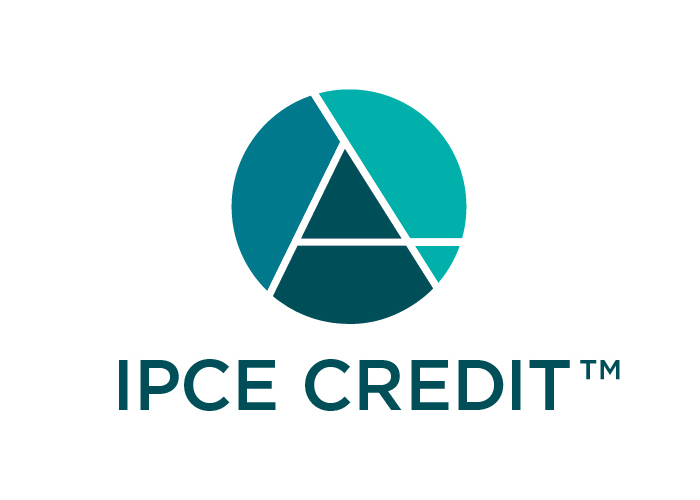New data and emerging science have significantly advanced our understanding of the pathophysiology of mild cognitive impairment (MCI) and early-onset Alzheimer’s disease (AD). The FDA has recently approved new disease-modifying therapies (DMTs) that slow the clinical course of MCI caused by AD. This curriculum helps clinicians identify the subtle signs and symptoms of MCI in AD. The program also helps clinicians recognize why and how racial and ethnic differences and disparities affect DMT acceptance, patient outcomes, and disease onset and progression. Faculty discuss the emerging data surrounding the novel pathways and mechanisms that drive MCI in AD and outline evidence-based treatment strategies as well as how to incorporate the new DMTs into clinical practice.
Professional Recommendations of Clinically Validated Tools Used to Diagnose MCI in AD
Be part of the knowledge.™Early-Stage Alzheimer’s Disease: New Therapies for Mild Cognitive Impairment
Professional Recommendations of Clinically Validated Tools Used to Diagnose MCI in AD
Overview
Target Audience
This activity has been designed to meet the educational needs of the interprofessional team, including Neurologists, Primary Care Clinicians (MD, DO, NP, PA), Nurses, and Pharmacists, involved in the management of patients with Mild Cognitive Impairment (MCI) in Early-Stage Alzheimer’s Disease (AD).
Learning Objectives
After participating in this educational activity, participants should be better able to:
- Utilize clinically relevant tools to assess the subtle signs and symptoms of MCI to facilitate an earlier MCI diagnosis
- Tailor communication strategies to each community of patients to overcome implicit bias and health disparities and to achieve optimal health outcomes and health equity
- Provide clinicians with new and emerging data related to the pathophysiology of MCI in AD
- Increase clinician awareness of the safety and efficacy of emerging DMT therapeutics used to manage MCI during the early stages of AD
Accreditation and Credit Designation Statements
 In support of improving patient care, this activity has been planned and implemented by Global Learning Collaborative (GLC) and Total CME, LLC. GLC is jointly accredited by the American Council for Continuing Medical Education (ACCME), the Accreditation Council for Pharmacy Education (ACPE), and the American Nurses Credentialing Center (ANCC) to provide continuing education for the healthcare team.
In support of improving patient care, this activity has been planned and implemented by Global Learning Collaborative (GLC) and Total CME, LLC. GLC is jointly accredited by the American Council for Continuing Medical Education (ACCME), the Accreditation Council for Pharmacy Education (ACPE), and the American Nurses Credentialing Center (ANCC) to provide continuing education for the healthcare team.This activity was planned by and for the healthcare team, and learners will receive 1.0 Interprofessional Continuing Education (IPCE) credit for learning and change.
Faculty Disclosure of Commercial Relationships
Disclosure Policy
In accordance with the ACCME Standards for Integrity and Independence, Global Learning Collaborative (GLC) requires that individuals in a position to control the content of an educational activity disclose all relevant financial relationships with any ineligible company. GLC mitigates all conflicts of interest to ensure independence, objectivity, balance, and scientific rigor in all educational programs.
The following faculty have disclosed:
Sharon Cohen, MD, FRCPC, faculty for this educational event, received research grants paid to institution from AbbVie, AgeneBio, Alector, Alnylam, Alzheon, Anavex, Biogen, Cassava Sciences, Eisai, Eli Lilly, GAP, Green Valley, Janssen, Novo Nordisk, RetiSpec, Roche, UCB Biopharma, and Vielight; and received consulting fees from Alnylam, Alzheimer's Society Toronto, Biogen, Cassava Sciences, Cognivue, Cogstate, Conference Board of Canada, Coverage Policy Task Force (CFPT) Alliance for Aging Research, Eisai, Eli Lilly, INmune Bio, Lundbeck, Novo Nordisk, Ontario Dementia Care Alliance (ODCA), Parexel, proMIS Neurosciences, RetiSpec, Roche, SciNeuro Pharmaceuticals, Seq Biomarque, and Voices of Alzheimer's (VoA).
Richard S. Isaacson, MD, faculty for this educational event, received consulting fees from Acadia, and Novo Nordisk.
Marwan Noel Sabbagh, MD, FAAN, faculty for this educational event, received research grants from Biogen, and Janssen; received ownership interest from NeuroTau, uMethod Health, Athira, Seq BioMarque, NeuroReserve, Lighthouse Pharmaceuticals, Alzheon, and Reservoir Neuroscience; and received consulting fees from Roche-Genentech, Eisai, Lilly, Synaptogenix, NeuroTherapia, T3D, Signant Health, Novo Nordisk, Corium, Prothena, and KeiferRx.Planners and Managers Disclosure List
The following planners/reviewers/managers have disclosed:
William Mencia, MD, FACEHP, CHCP, reviewer for this educational event, has no relevant financial relationships with ineligible companies.
Total CME, LLC., planners, and managers have no relevant commercial relationships to disclose.
All the relevant financial relationships for these individuals have been mitigated.Disclaimer
The views and opinions expressed in this educational activity are those of the faculty and do not necessarily represent the views of GLC and Total CME, LLC. This presentation is not intended to define an exclusive course of patient management; the participant should use his/her clinical judgment, knowledge, experience, and diagnostic skills in applying or adopting for professional use any of the information provided herein. Any procedures, medications, or other courses of diagnosis or treatment discussed or suggested in this activity should not be used by clinicians without evaluation of their patient's conditions and possible contraindications or dangers in use, review of any applicable manufacturer’s product information, and comparison with recommendations of other authorities. Links to other sites may be provided as additional sources of information. Once you elect to link to a site outside of MedEd On The Go, you are subject to the terms and conditions of use, including copyright and licensing restrictions, of that site.
Reproduction Prohibited
Reproduction of this material is not permitted without written permission from the copyright owner.Provider(s)/Educational Partner(s)
Jointly provided by Global Learning Collaborative (GLC) and Total CME, LLC.
Commercial Support
This activity is supported by an independent educational grant from Eisai.
Instructions for Completion
During the period 9/8/2023 through 9/8/2024, registered participants wishing to receive continuing education credit for this activity must follow these steps:
1. Read the learning objectives and faculty disclosures.
2. Answer a pre-program question.
3. View the program.
4. Complete the post-test with a score of 100%.
5. Complete activity evaluation.
6. Apply for credit and either bank your credits or print your certificate.
For Pharmacists: Upon successfully completing the post-test with a score of 100% and the activity evaluation form, transcript information will be sent to the NABP CPE Monitor Service. This may require you to add or update the e-profile ID/date of birth information saved in your account.System Requirements
- Supported Browsers (2 most recent versions):
- Google Chrome for Windows, Mac OS, iOS, and Android
- Apple Safari for Mac OS and iOS
- Mozilla Firefox for Windows, Mac OS, iOS, and Android
- Microsoft Edge for Windows
- Recommended Internet Speed: 5Mbps+
Publication Dates
Release Date:
Expiration Date:




Facebook Comments